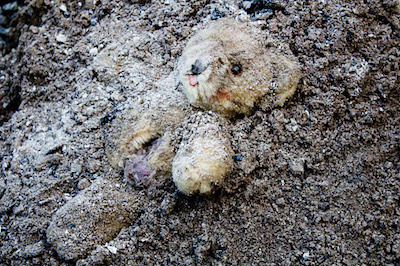All Search Results
-
Why your pediatrician isn't a big fan of fruit juice
You may have seen some recent news headlines that state that pediatricians recommend that infants less than one year of age consume no fruit juice at all. While this is a change to previous recommendations stating that juice was not recommended in infants less than six months of age, the truth is that pediatricians have long been wary of kids drinking too much fruit juice. Even among older kids, the recommended serving sizes of juice they can consume in a day are shockingly small.
-
Living with Gastroparesis: Step into one patient's shoes as she lives with a chronic illness
I’m 18 years old, and I have a disease known as Gastroparesis, which means that my digestive tract is paralyzed and unable to digest food. I have been managing this disease for about 3 years and while I do sometimes have to stay in the hospital, I have learned how to take care of many of my medical needs at home. Stay tuned throughout the day for more pictures of me as I manage my daily routine.
-
Injuries from nursery products are on the rise. Find out how to keep your baby safe.
I remember a time nearly 8 years ago when I was preparing for the birth of my first child and a friend gave me a sleep wedge as a gift. I’d never heard of a sleep wedge, but she said a friend told her it was a lifesaver for getting a baby to sleep.
-
What can kids do to help when disasters like Hurricane Harvey hit?
 Many relief organizations are asking for monetary donations and usable donated items for those that have been displaced from their homes. Kids can take up cash collections, whether they do this at school or with their family members. That cash can be turned into a check designated to a reputable charitable organization. Kids can also go through their own clothes, books, and toys and set items aside that can be used by children that have been impacted directly by the storm. Many agencies are asking for monetary donations in lieu of “stuff” at the moment, but there will come a time soon where families will need things. Parents can help kids by sorting and organizing items that can be donated, finding appropriate organizations for the donations, and sending them off when the time is right.
Many relief organizations are asking for monetary donations and usable donated items for those that have been displaced from their homes. Kids can take up cash collections, whether they do this at school or with their family members. That cash can be turned into a check designated to a reputable charitable organization. Kids can also go through their own clothes, books, and toys and set items aside that can be used by children that have been impacted directly by the storm. Many agencies are asking for monetary donations in lieu of “stuff” at the moment, but there will come a time soon where families will need things. Parents can help kids by sorting and organizing items that can be donated, finding appropriate organizations for the donations, and sending them off when the time is right. -
Getting to Know Dr. Celine Cattier, Pediatric Palliative Care Specialist
Today we’ll get to know Dr. Celine Cattier, a pediatric palliative care specialist, who has recently joined the Pediatric Palliative Care Team alongside Dr. Blaine Pitts to offer services to patients from newborn to young adult at Arnold Palmer Hospital and Winnie Palmer Hospital.
-
So you have a child that isn’t talking yet. What should you do?
As a pediatric Speech-Language Pathologist, I see children with a variety of speech and language disorders. One of the most common is what is known as expressive language delay, which is when a child is not using the vocabulary and phrase/sentence length that is appropriate for their age. Although there can be specific medical reasons for the delay, it can also happen with no other diagnosis. For those kids who seem to understand everything but are not communicating at their age level, I encourage parents to work on building their child’s “intent to communicate.”
-
Help Your Child and Teen Lower Their Risk of Prediabetes
When we think about diabetes, we often picture it affecting an adult. And if the disease affects a child, we assume it is type 1 diabetes. But that’s changing. More children and teens are developing type 2 diabetes, and its precursor, prediabetes. A study from 2012 found 23 percent of teens had diabetes or prediabetes, which was an increase from 9 percent in just 10 years. Those are concerning statistics, and researchers believe that the increase is due to more children being obese and overweight.
-
What to Know About Sickle Cell Disease
Sickle cell disease is the name of an inherited problem with red blood cells. Most people have red blood cells that are disc-shaped and move easily through blood vessels, but those with sickle cell have red blood cells that are C-shaped (like the farm tool called a sickle). The unusual shape of red blood cells, as well as their tendency to harden and become sticky as they travel through blood vessels, causes a variety of problems.
-
Avoid distracted driving to keep your family safe on the road
Is distracted driving putting your family in danger?
-
5 Steps for Managing the Risks of Your Child’s Epilepsy
If you have a child with epilepsy, worrying about the risk of seizures can add stress to any day. Whether they’re at school, the playground or accompanying you to the grocery store, you may be searching for signs of an oncoming issue. But there are steps you can take to prevent epilepsy’s most serious risks.






